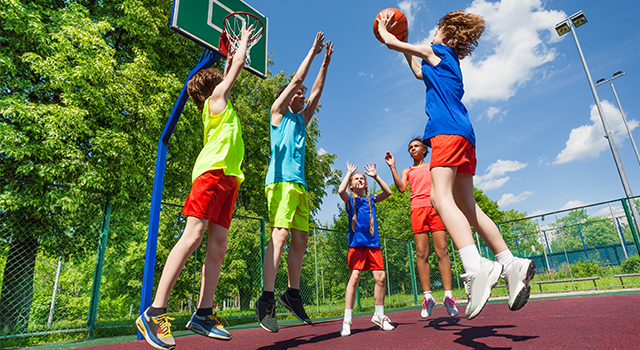Over 90% of all children with glasses are able to successfully wear contact lenses.
A child’s eyes can handle contact lenses from an early age. Due to congenital cataracts or other eye problems present at birth, some infants are even fitted with contact lenses.
Children can successfully wear contacts
In a 2006 study published in Optometry and Vision Science, showed;
90% of myopic (nearsighted) children aged 8-11 who were fitted with one-day disposable daily contact lenses had no trouble inserting or removing the lenses without help from their parents.
If you’re thinking of your child wearing contact lenses, evaluate how they manage other obligations. Do they have good personal hygiene? Do they complete their homework and household responsibilities on time?
If your child needs to be reminded to keep things clean and follow appropriate hygiene habits on a regular basis, they may not be ready to wear and care for contact lenses. However, if they are capable of handling such responsibilities, they may be good candidates for contacts.
Contact lenses for children can correct or control myopia, help them participate in sports, and boost their self-esteem.
Contact an eye doctor near you and help your child build their confidence with contact lenses.
SEE RELATED: Contact Lenses Safety for Children
Contact lenses build self-esteem
Many children are self-conscious about wearing eyeglasses or simply dislike how they look in them.
Contact lenses can boost a child’s self-confidence by improving their appearance and engagement in social occasions and sports.
In a study published in Optometry and Vision Science, 484 children ages 8 to 11 were randomly assigned to wear either contact lenses or glasses for a period of three years.
At the end of the study, the children who wore contact lenses had higher survey ratings for self-perception of their physical appearance, athletic competence, and social acceptance.
Also, remember that transitioning your child from glasses to contact lenses does not have to be a permanent decision. If your child doesn’t adjust well to contact lenses or doesn’t want to take on the responsibility of wearing and caring for them, they can easily go back to wearing glasses.
Contacts can control myopia
Another reason you may want to have your child fitted for contact lenses is that some specialized contact lenses can help slow or halt the progression of myopia, this is called Myopia Management.
A number of recent studies have shown that specially designed gas permeable contact lenses and multifocal soft contacts may also help many children control their myopia.
In addition, orthokeratology (or “ortho-k”), has been shown to be effective in reversing existing nearsightedness in myopic children. Ortho-k are specially constructed GP lenses that alter the shape of the cornea as the child sleeps. The lenses are removed in the morning, and if effective, ortho-k allows a nearsighted individual to see clearly without needing eyewear during the day.
Contacts and sports
Contact lenses have a lot of advantages over glasses for children who participate in sports.
Even if your child’s eyeglasses have impact-resistant polycarbonate lenses, you must be concerned about the frames shattering during contact sports, potentially resulting in an eye injury.
Additionally, during competition, the lenses of the eyeglasses might fog up, affecting vision and performance.
Contact lenses worn during sports address these issues while also providing other benefits, such as an unobstructed view of the playing field and improved peripheral vision, allowing your child to react faster to other players and objects approaching from the side, such as a soccer ball or baseball.
When your child is playing sports, contact lenses stay in place on their eyes, allowing for more accurate and stable vision.
To determine whether your child is ready for contact lenses, your eye doctor will evaluate the child’s maturity and level of parental support. If the answer is yes, the eye doctor will perform a comprehensive contact lens exam and fitting.
LEARN MORE: Children’s Vision
Schedule an appointment with an eye doctor near you to find out which contact lenses are best suited for your child.
Contact lenses can be worn successfully by children as young as 8 years old, providing them with clear vision and enhancing their self esteem.


